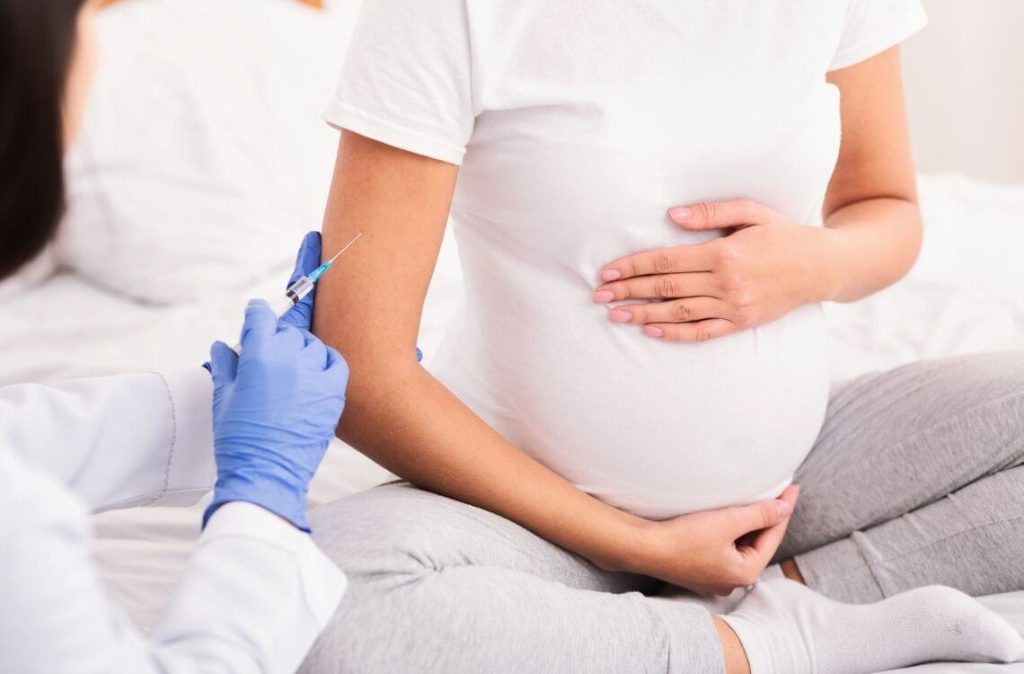The transition for expecting women into motherhood endured drastic turns when the pandemic first swept across the globe. Questions pertaining to the risks of pregnancy during COVID-19 began to surface. And as the vaccination rollouts began, concerns regarding the safety of its administration on expecting mothers simmered voraciously within communities all over.
Dr. Sumithra Devi Valiapan is here with Motherhood Story to share with expectant mothers the risks of pregnancy during COVID-19, and the significance of vaccine administration on expecting mothers.
Dr. Sumitra is a fertility specialist from Sunfert fertility centre, with a passion and specialty in Reproductive Medicine. Together with Motherhood Story, we are walking our readers today through every ounce of concern and frequently asked questions in regards to the COVID-19 vaccines for expecting mothers.
#1 What are the risks of COVID-19 in pregnancy?
Recent data shows that pregnant women are vulnerable and more susceptible to severe COVID-19 infections, especially in their late second trimester and throughout their third trimester of pregnancy.
They have a higher risk of requiring hospital admission, ICU admission, and breathing support. Severe infection in pregnancy is also associated with a higher risk of premature delivery, most commonly by caesarean section.
This prematurity has long-term consequences for the baby. There is also a higher risk for stillbirths and maternal deaths.
#2 Is the vaccine safe for pregnant mothers?
All the Malaysian MOH-approved vaccines are safe in pregnant women since they are all non-live vaccines.
Multinational safety data on COVID-19 vaccination in pregnant women have thus far been very reassuring. However, these being new vaccines, there are, admittedly, no specific long-term data on the effects of the vaccines.
What we do have though, is safety data on other widely used non-live vaccines like the flu vaccine which have been used in pregnancy and have not shown any substantial cause for concern.
#3 What are the recommendations for pregnant women?
Currently, the Malaysian Ministry of Health (MOH) recommendation is to vaccinate pregnant mothers at 12 weeks of pregnancy and beyond, with the aim of completing all necessary doses before the latter part of her second trimester.
This marks the period of time in a woman’s pregnancy when she is most vulnerable to the infection and its complications.
#4 When is the best time for pregnant women to have a COVID-19 vaccine?
The latest advisory from the Malaysian MOH is that all pregnant women should get the COVID-19 vaccine once they cross their 12th week of pregnancy.
However, they also stated that pregnant women keen on the vaccine should not be denied the vaccine at any gestation.
#5 Will the vaccine affect the fetus?
The COVID-19 vaccines we use now are not ‘live’ vaccines and so cannot cause COVID-19 infection in the mother or her baby. Other non-live vaccines have been given to women in pregnancy for many years without any serious safety concerns.
Vaccination is the best way to protect against the known risks of COVID-19 infection in pregnancy for both, women and their babies, most notably, admission to intensive care, requiring breathing support, and premature birth.
#6 Will the vaccine increase any risk of complications during delivery?
There is no known plausible mechanism for the vaccines to cause problems during delivery.
#7 What are the recommendations for women planning a pregnancy?
It is highly recommended that everyone gets vaccinated against COVID-19 infection, including couples contemplating pregnancy or fertility treatment.
#8 Will the vaccine affect fertility treatment?
There is no evidence to suggest that COVID-19 vaccines affect fertility.
